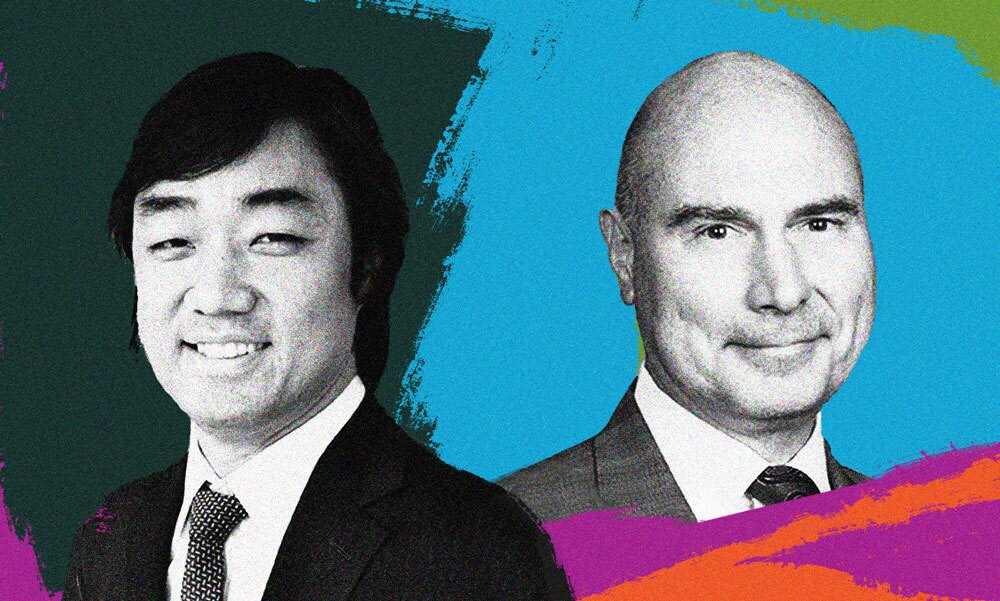While some institutions have been rapidly decreasing their allocations to hedge fund investments, a Connecticut-based hospital system’s decision to stay invested is paying off.
Hartford HealthCare’s hedge fund program returned 23 percent during 2020, according to chief investment officer David Holmgren. What’s more is that the fund generated those returns with its largest allocation to a minority-owned investment manager.
Here’s how Hartford does it.
The $4 billion investment office takes an active investment approach across asset classes. Holmgren prides his team on its in-depth due diligence process, which includes visiting the offices of every manager before making an investment with them. The fund works alongside consulting firm Aksia to do its research on these hedge funds. Once invested, Holmgren and his team check in on managers as often as every six weeks.
“We do not allocate then check out and go on holiday,” Holmgren said. “Our process is quite intensive.”
This approach has proved beneficial for Hartford. Institutional Investor reported in 2018 that the fund’s performance was in the top 2 percentile of endowments and foundations.
Hartford is invested with 14 hedge funds, including AB Arya Partners, which returned 19.5 percent during 2020; Balyasny Asset Management, which returned 29.5 percent; Oceanwood Capital Management, which returned 21.2 percent; and Venor Capital Management, which returned 19.1 percent, Holmgren shared.
Hartford’s Biggest Hedge Fund Investment
But the healthcare fund’s largest allocation is to Standard General, a New York-based manager that focuses on turnaround situations at leveraged companies. In 2020, according to Holmgren, the fund returned 21.4 percent.
“We have a very strong bond,” Holmgren said. “It’s not just that they’re incredibly sharp investors with a great investment pedigree. They happen to also do the work. They are homework intensive, bottom-up researchers.”
Founded in 2007 by Soo Kim, a Korean-American, Standard General now manages roughly $2 billion. Kim had previously worked at Och-Ziff Capital Management among other firms.
“We have a lot of experience in trading, pricing, and at worst case reorganizing/restructuring debt,” Kim said by phone. He added that Standard General tends to take positions where the firm holds both debt and equities. They look for small- to mid-cap companies and tend to avoid growth and tech stocks.
According to Kim, the firm follows these companies then strikes when there is a market opportunity or event. Then, Standard General begins to build a position, with an end-goal of board representation and direct involvement in a company’s turnaround.
“We believe that public shareholders should vote and that their votes should matter,” Kim said. “We’re not activists. We’re active.”
While the fund is minority-owned, neither Holmgren nor Kim treats that as the fund’s biggest accomplishment.
“We are a diverse manager,” Kim said. “But more important than who I am and who my partners are, is what we do.” He pointed out that during Standard General’s tenure, the firm has put 15 women and minorities on company boards.
“We’ve never selected anyone because of their diversity,” Holmgren said. “We’ve kept a natural selection process.” And it’s worked. Hartford’s largest private equity allocation is also minority-owned, he said.
Betting Big on Entertainment
Standard General’s largest position is in Bally’s Corp., a casino and sports gambling company that the firm has been invested with for ten years, having taken it public after a restructuring. Kim has been on the company’s board for five years, and its chairman for one and a half.
“We’ve taken what is a boring old casino and turned it into a growth company,” Kim said.
Standard General has bet similarly on another entertainment company: National CineMedia. “That’s a company that is in a more challenged position because frankly there’s been a lot of questions as to whether movie theaters are still relevant,” Kim said.
Kim joined the board two years ago and believes that CineMedia has room to grow. “What we think is exciting about this name is that the movie theater experience is not dead,” he said. “There’s still value to a communal event experience.”
In addition to investing in Standard General’s funds, Hartford co-invests directly in the companies the hedge fund has selected. “Part of our interest in sizing up further is I think their largest positions are going to be the beneficiary of coming out of Covid-19,” Holmgren said. He added that Hartford makes direct co-investments in its “highest conviction, esoteric, unique, non-overlapping” assets.
According to Kim, this strategy is growing among investors. “That active co-investment we’re seeing more often,” he said. “We are a good fund for that because we have a number of our investors co-invest alongside us.”







